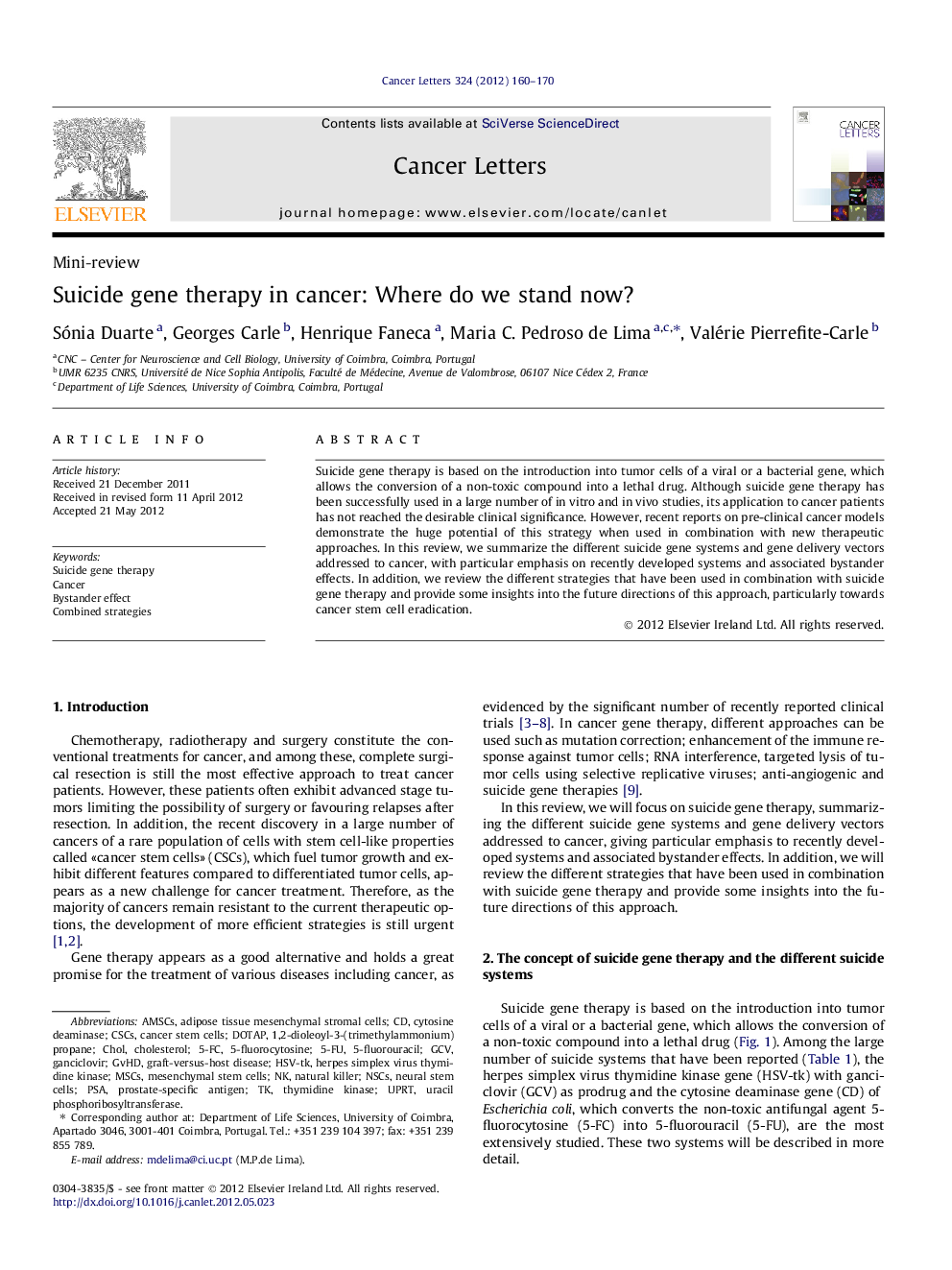| Article ID | Journal | Published Year | Pages | File Type |
|---|---|---|---|---|
| 2113211 | Cancer Letters | 2012 | 11 Pages |
Suicide gene therapy is based on the introduction into tumor cells of a viral or a bacterial gene, which allows the conversion of a non-toxic compound into a lethal drug. Although suicide gene therapy has been successfully used in a large number of in vitro and in vivo studies, its application to cancer patients has not reached the desirable clinical significance. However, recent reports on pre-clinical cancer models demonstrate the huge potential of this strategy when used in combination with new therapeutic approaches. In this review, we summarize the different suicide gene systems and gene delivery vectors addressed to cancer, with particular emphasis on recently developed systems and associated bystander effects. In addition, we review the different strategies that have been used in combination with suicide gene therapy and provide some insights into the future directions of this approach, particularly towards cancer stem cell eradication.
